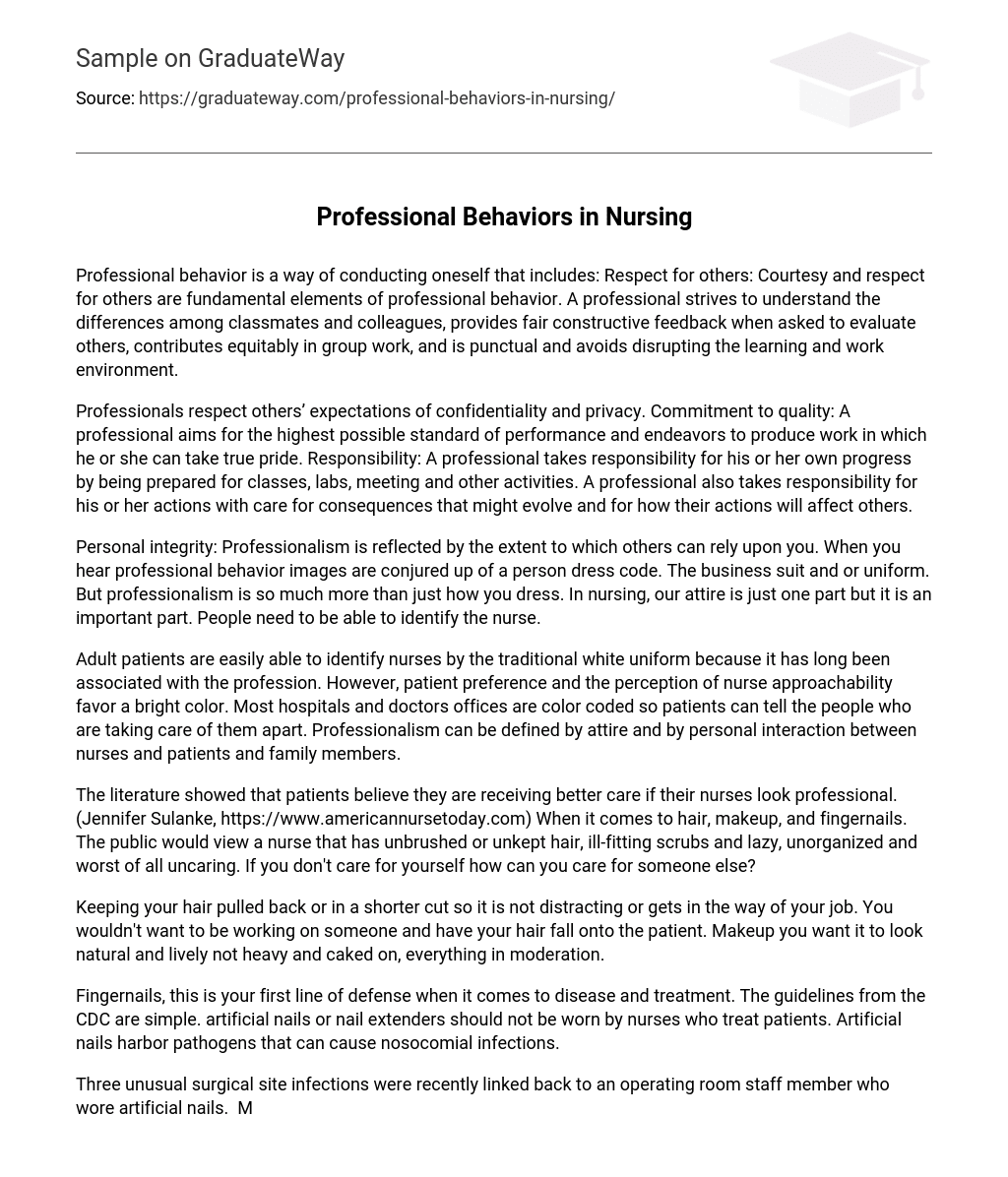Professional behavior is a way of conducting oneself that includes: Respect for others: Courtesy and respect for others are fundamental elements of professional behavior. A professional strives to understand the differences among classmates and colleagues, provides fair constructive feedback when asked to evaluate others, contributes equitably in group work, and is punctual and avoids disrupting the learning and work environment.
Professionals respect others’ expectations of confidentiality and privacy. Commitment to quality: A professional aims for the highest possible standard of performance and endeavors to produce work in which he or she can take true pride. Responsibility: A professional takes responsibility for his or her own progress by being prepared for classes, labs, meeting and other activities. A professional also takes responsibility for his or her actions with care for consequences that might evolve and for how their actions will affect others.
Personal integrity: Professionalism is reflected by the extent to which others can rely upon you. When you hear professional behavior images are conjured up of a person dress code. The business suit and or uniform. But professionalism is so much more than just how you dress. In nursing, our attire is just one part but it is an important part. People need to be able to identify the nurse.
Adult patients are easily able to identify nurses by the traditional white uniform because it has long been associated with the profession. However, patient preference and the perception of nurse approachability favor a bright color. Most hospitals and doctors offices are color coded so patients can tell the people who are taking care of them apart. Professionalism can be defined by attire and by personal interaction between nurses and patients and family members.
The literature showed that patients believe they are receiving better care if their nurses look professional. (Jennifer Sulanke, https://www.americannursetoday.com) When it comes to hair, makeup, and fingernails. The public would view a nurse that has unbrushed or unkept hair, ill-fitting scrubs and lazy, unorganized and worst of all uncaring. If you don’t care for yourself how can you care for someone else?
Keeping your hair pulled back or in a shorter cut so it is not distracting or gets in the way of your job. You wouldn’t want to be working on someone and have your hair fall onto the patient. Makeup you want it to look natural and lively not heavy and caked on, everything in moderation.
Fingernails, this is your first line of defense when it comes to disease and treatment. The guidelines from the CDC are simple. artificial nails or nail extenders should not be worn by nurses who treat patients. Artificial nails harbor pathogens that can cause nosocomial infections.
Three unusual surgical site infections were recently linked back to an operating room staff member who wore artificial nails. Most medical facilities will allow fingernail polish, not gel that is clear or a modest color with absolutely no chips. The chips in the nail polish could harbor bacteria.
When it comes to shoes, it comes down to comfort, whether it clogs or tennis shoes. Most nurses start out their careers in white. The shoes stayed black until white leather came on the market: Then white leather shoes for nursing were born, and nurses were decked head-to-toe in starched white textiles. (Emily Johnson, nursingshoeheaven.com) The traditional whites portrayed cleanliness and sterility.
Jewelry should be kept to a minimum and should not interfere with your tasks set forth by your job. You don’t want to wear anything a patient can grab a hold of. Especially something around your neck that they can choke you with.
When it comes to professionalism and dress code perception is the reality. Patients feel more satisfied with the care they receive from doctors if they wear white coats during rounds, rather than just scrubs or other clothing. They also see white coats as more professional.
While strict dress codes have gone by the wayside at many facilities, it could be time to hold staff to more consistent standards, especially as patients’ perceptions start playing a bigger role in reimbursement through patient satisfaction surveys.





